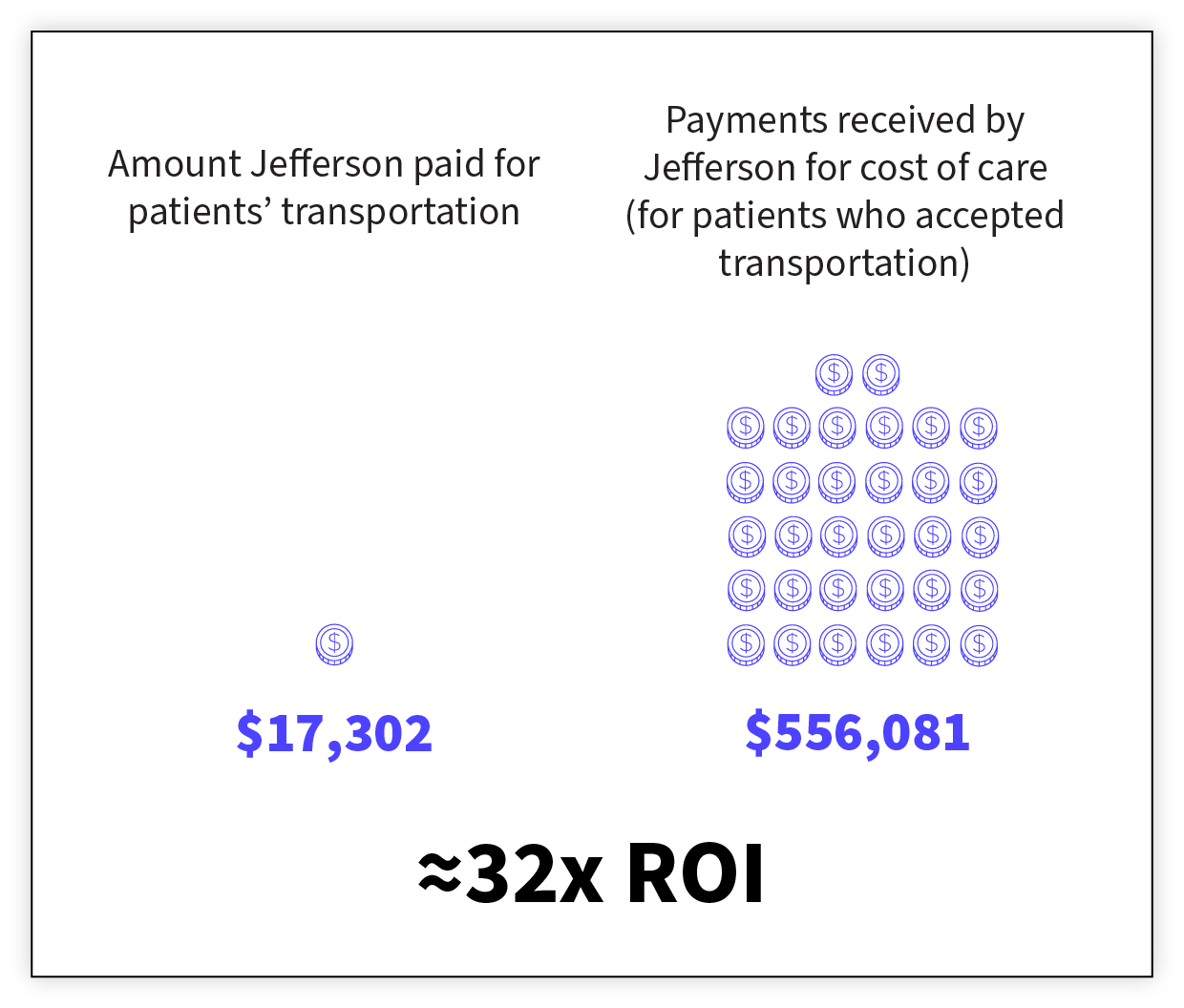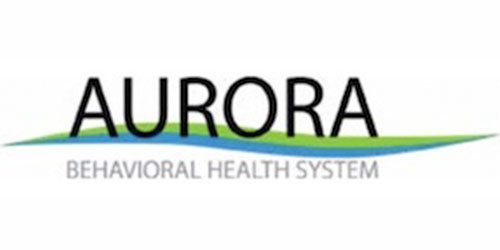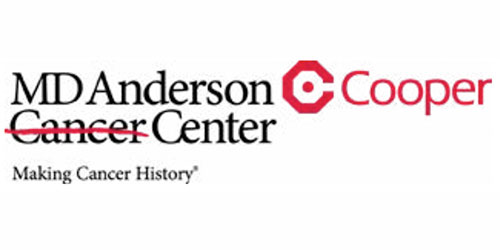Overview
Jefferson Health is a world-renowned health system serving the greater Philadelphia metro area. For nearly 25 years, it has been a leader in oncology research, patient treatment, and cancer education, caring for 9,000+ new patients annually. It is one of the 70 centers in the nation recognized by the National Cancer Institute, bringing the highest-quality care to a catchment area spanning over two-thirds of all Philadelphians.
According to U.S. News & World’s 2021 report of the best hospitals and specialties, Jefferson is among the best in Pennsylvania and the Philadelphia metro area. With 908 licensed acute care beds and major programs across a wide array of clinical specialties, Jefferson strives to provide an unparalleled value in care for those in its service area.
Challenge
Accessing transportation is often an obstacle for individuals undergoing repeat treatments such as chemotherapy and radiation, especially those who live far from the treatment facility. This transportation challenge disproportionately affects populations with a lower economic status, elderly populations, as well as racial and ethnic minorities. Given their experience serving a diverse population in Philadelphia, Jefferson Health recognized the need to address transportation barriers for its cancer patients.
Jefferson Health received grants from several non-profit organizations, which allowed it to provide thousands of rides to patients attending oncology, radiation oncology, surgical oncology, and other cancer-related appointments. However, Jefferson Health struggled to find a streamlined solution for scheduling, tracking, and reporting the transportation it offered to its patients. Care coordinators were using several manual methods to book rides, such as calling taxi companies. This resulted in missed connections, added dollars spent, and issues with patients not making it to appointments on time.
To mitigate these issues and better track its transportation-related spending, Jefferson Health aimed to implement a new patient transportation system.
Solution
Jefferson Health started working with Roundtrip in January 2018, allowing the organization to improve the efficiency and effectiveness of its transportation program. Care coordinators no longer need to spend valuable time calling taxi companies to find an available ride for patients. Instead, they can simply login to Roundtrip’s software platform and navigate through a ride booking workflow in less than three minutes. Thanks to Roundtrip’s extensive network of transportation providers, care coordinators can select from a variety of transportation options, including rideshare, taxi, medical sedan, and wheelchair van, so that patients have access to the appropriate form of transportation to meet their mobility needs.
Additionally, Jefferson Health can access Roundtrip’s 24/7 navigation center, which provides real-time ride support during trips and technical assistance as needed. Roundtrip’s detailed reporting tools provide Jefferson Health with valuable insights into patient rides, vehicle types used, and trip reasons. This information helps Jefferson Health assess what grant funding was utilized, measure the value of the funding, and provide the impact data needed to apply for future grants.
Impact
In May 2020, Jefferson Health reported a notable improvement in appointment adherence. In 2018, the average no-show rate for radiation and medical oncology appointments was 4.3%. In 2019, the average no-show rate reduced to 3.7%. Additionally, there was evidence of a significant ROI. For every dollar that SKCC spent on providing patients with transportation to infusion and radiation appointments, it received nearly $32 back in reimbursement (see figure 1).

When asked about the impact Roundtrip has had on Jefferson Health, Manager of Social Work, Becky Cammy says,
“My staff has been able to more efficiently get patients rides to and from their appointments, and Roundtrip has really been able to help with reducing our no-show rate. This is especially true in radiation oncology where patients are coming in sometimes for 30 days, Monday through Friday for treatment. That can be really wearing on people and not having a caregiver who can be able to take them every day and take off of work, so the benefit of that in terms of our reimbursement as well, making sure that our patients are here and here on time without altering the schedule of patients for the day is really beneficial to our staff as well.”
Conclusion
By streamlining the patient transportation process, Jefferson Health has improved efficiency, reduced no-show rates, and achieved a clear ROI. Roundtrip’s reporting tools have also provided valuable insights into ride usage and spending, helping Jefferson Health to better track its efforts and apply for new grants. Given the success of the initial implementation, Jefferson Health has expanded its use of Roundtrip to all other cancer center locations, enabling all systems to be on the same workflow.
Sources cited:
U.S. Census Bureau. (n.d.). QuickFacts: Philadelphia County, Pennsylvania. https://www.census.gov/quickfacts/fact/table/philadelphiacountypennsylvania/PST045221
Wolfe, M., McDonald, N., & Holmes, G. (2020). Transportation Barriers to Health Care in the United States: Findings From the National Health Interview Survey, 1997–2017. National Library of Medicine. https://www.ncbi.nlm.nih.gov/pmc/articles/PMC7204444/

